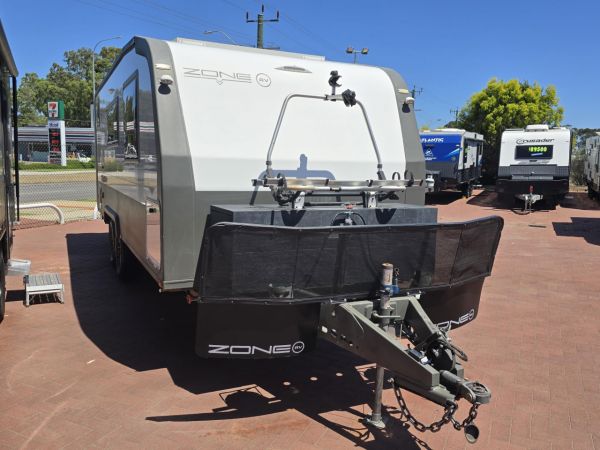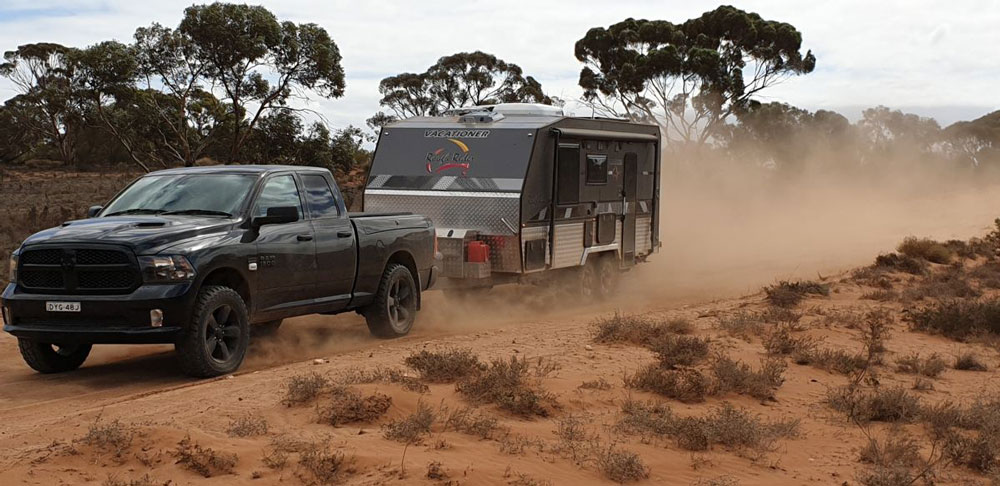
Off Road Caravan Essentials for Your Next Adventure
Off-road touring with a caravan can be an exhilarating adventure, but it does require some planning and preparation. Many will suddenly find themselves out of their comfort zone on the road to their dream location. But what will you need once you leave the black top and head down the rough road of new challenges where you will undoubtedly be thrown the occasional curve ball?
To help you plan for those challenges, I’ve compiled some off-road caravan essentials that will hopefully equip you for many surprises. But the bottom line is that if you seek remote touring, you need to have elements of preparation, knowledge, and self-confidence to continue your enjoyable trip. I’ve learned always to expect the unexpected when traveling in our great country!
Venturing into the unknown, and sometimes even the known with a caravan in tow demands a well-stocked array of essential items to ensure a safe and enjoyable journey. Most items you just shouldn’t leave home without, nor without the knowledge to use them!
Here's my list of must-haves for off-road touring with a caravan:
1. Water
Consider your water usage, transportation and storage wisely! Yet also consider the weight - water is heavy! Carry sufficient water containers, both inbuilt and portable to meet your needs.
Humans generally require a minimum of 2 litres of drinking water per day. Plus you need adequate supplies for hygiene, dishes, cleaning, cooking etc. Many say we need carry a minimum of 4 litres per day per person, and that is being frugal!
It has been said that I have a cast iron gut as I can drink most potable water regardless of taste. Others are more sensitive and may require cartridge filtration or even bottled drinking water.
2. Power
Power is obviously essential to modern adventure, however requirements vary dramatically according to your own personal needs. I am a simple man who has lived off grid for many weeks at a time with only a twin battery system with simple charger, a pure sine wave inverter and the charge generated by the towing vehicle to run simple LED lighting, portable refrigeration, and to charge my phone, computer and camera's.
However, most travelers nowadays, particularly families, require huge amounts of power and the associated generation, storage and management facilities to run the host of gizmo's and gadgets. These may include lighting, air conditioners, washing machines, coffee machines, electronic games and instruments, televisions, and even satellite dishes, etc, that many now consider "essential!".
Hence there are many options available to caravanners to meet their power requirements including solar, lithium batteries and generators, plus the power generated through the towing vehicle. The modern Battery Management Systems (BMS) are exceptionally comprehensive.
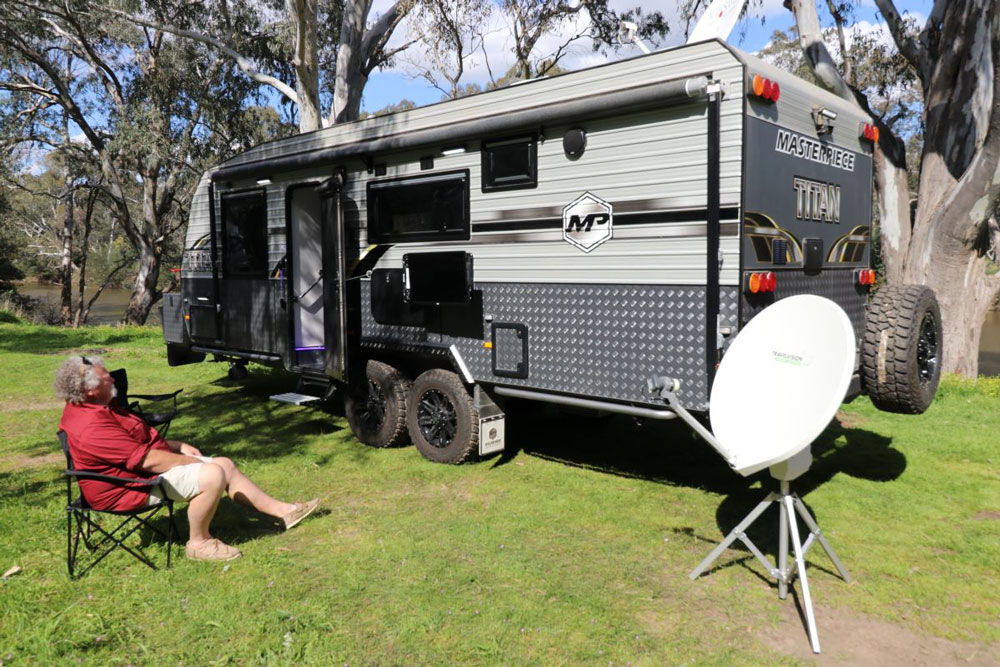
3. Safety and Emergency Equipment
First Aid Kit
A reasonably comprehensive first aid kit should include bandages, antiseptic wipes and liquid, painkillers, and any medications you may need. Cuts and insect bites are the most common injuries, so a range of dressings and antihistamines are certain inclusions. The kit should include scissors, tweezers, and even an eye wash. I know it’s not recommended, but I even carry a hooked needle and thread for the rare occasion when I have stitched myself up!
But it's most important to know how to use them. Ask yourself, what do you do for snake bites, heart attacks, broken bones, or allergic shock? I highly recommend completing a certified first aid course and keeping it up to date with the latest procedures.
Fire Extinguisher
A fire extinguisher is a critical safety item, especially when traveling in remote areas. Have you ever used one, or do you know how? If you have ever been placed in the first respondent position for firefighting, you will appreciate how frightening it is.
The regulation 1kg fire extinguishers only spray for a surprisingly short 10-12 seconds, which is very little, particularly if flammable liquid is involved. I always carry a minimum of 2.5kg bottles in easily accessed positions, one in the caravan and one in the towing vehicle. And don't forget a fire blanket! It could make all the difference in an emergency.
Reflective Triangles and Road Flares
In case of a breakdown or accident, reflective triangles and road flares can help alert other drivers to the problem.
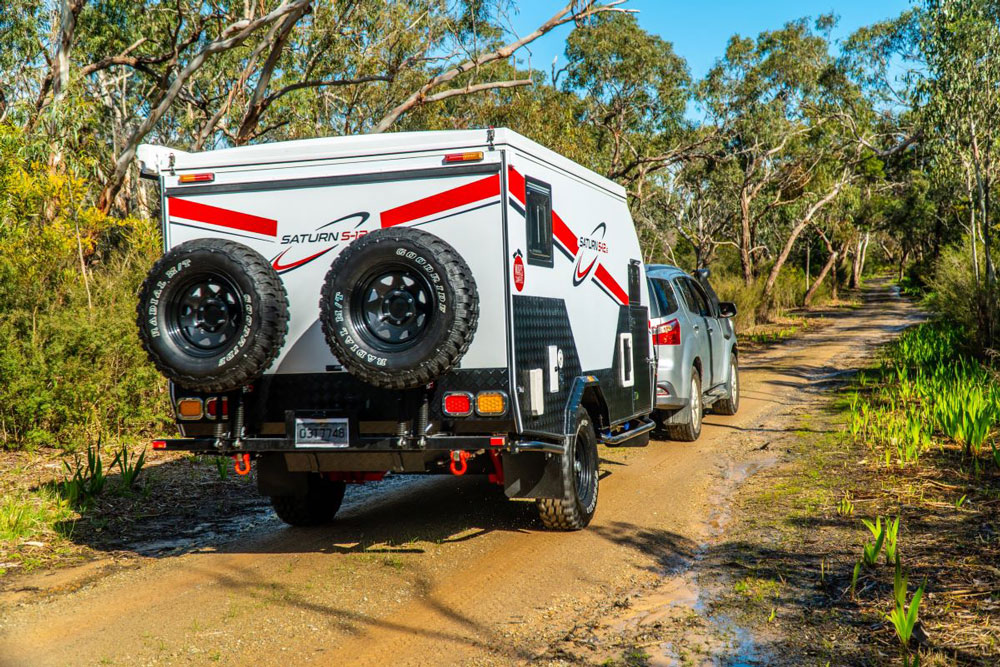
Spare Wheel and Tyre
A flat tyre or blowout is inevitable in any off road caravan adventure. You will need at least one spare tyre for the caravan and another for the towing vehicle. Sometimes, you can have matching size/stud patterns for interchangeability. I recommend more than one for each unit, plus suitable tools. Check your wheel nut sizes; they may differ from vehicle to caravan.
Jack and Supports
A good-quality jack is most important, but also recognising that breakdowns may occur in sand, mud, uneven surfaces, challenging terrain, steep inclines, etc. Hence, it's wise to travel with load-supporting blocks, wheel chocks, jack stands, suitable wheel brace/s, and a puncture repair kit. Always ensure your wheel nuts are at suitable tension and not rusted on in your preparation.
Recovery Gear
You just never know when you may require some recovery equipment. I always carry a snatch strap with shackles, electric or manual winch, gloves, shovel, recovery boards, ropes, and chain – and ensure you have means to wash up after a muddy extraction! Before you leave home find out where your recovery points are located for both the towing vehicle and the caravan.
Tyre Deflation Kit/Compressor
A tyre deflation kit (including tyre pressure gauge) and portable compressor, as well as knowledge of how and when to use them, are essential for off-road travel.
Toolkit
I recommend a fairly comprehensive set of practical tools for serious off-road travel, generally including a ½” metric and imperial socket set, open-ended/ring spanners, screwdriver assortment, adjustable wrenches, pliers/multi grips, multimeter, trouble/work lights, etc.
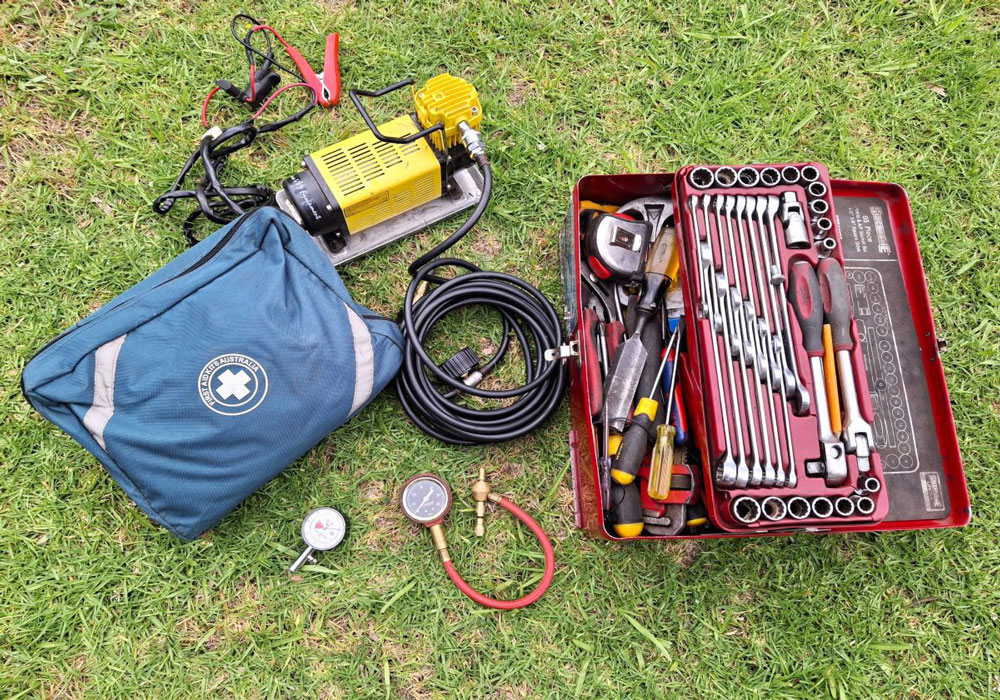
Check out our complete list of road trip safety essentials for traveling in Australia for more.
4. Navigation and Communication
It's well worth carrying multiple devices and resources for navigation and communication, just in case one happens to lose signal when you're in remote areas.
GPS Apps or Devices
Definitely bring along a GPS device or a smartphone/iPad with a GPS app to help you navigate remote areas. GPS devices are essential for getting in and, more importantly, for finding your way out!
Combining this with a signal booster for offroad/remote travel is wise. Before you leave home, it is also worth checking your mobile service provider with other experienced travellers. In my experience, some do not live up to their coverage claims.
Two-way Radio or Satellite Phone
A UHF two-way radio with a strong aerial, or satellite phone can help you stay in touch with the outside world in case of an emergency.
Satellite Communicator
Numerous satellite communicators specifically designed for travellers provide position fixing, tracking, snail trail, programmed communications, and emergency warnings. Ie Zoleo. I also like travelling with a personal EPIRB (emergency beacon) especially when exploring on foot or in the tinny/kayak.
Maps and Guides
It feels old school, but it doesn't hurt to have an analog backup! Detailed maps and guides can provide valuable information about the area you're traveling in in an easily referenced format.
5. Caravan Maintenance and Repair Kit
Spare Parts
Carry a selection of vehicle and caravan spare parts and consumables, including fuses, light bulbs, and other essential components. It is worth carrying spare wheel bearings, grease, brake pads and know how to change/repair them. Some caravans with independent offroad suspension have replaceable hubs. Shock absorbers and springs may also come in handy!
No matter how new your vehicle, I always carry spare engine oil - just in case. Spare heater and radiator hoses can save a remote trip from disaster. Other spares include radiator coolant, a can of Bars Leaks or similar radiator repair goop, windscreen wiper detergent, fan/alternator/air conditioner belts, spare wheel nuts/studs, wheel bearings, grease, and a chamois for the windows.
Caravan Maintenance Kit
A caravan maintenance kit should include items like lubricants, sealants (silicone/sikaflex etc) cleaning products, a selection of nuts, bolts and self-tapping screws, and other essentials. Rags always come in handy. Remember the old joke that there’s almost nothing you can’t repair with gaffer tape, cable ties, and star pickets (It’s true!), and then there’s a quote, “Give me a lever, and I’ll move the world!” I always take a crow/pinch bar.
Other Tools and Essentials
A cordless drill is often invaluable, as is an axe, bow/bush saw or chainsaw. I have portable lighting, tarpaulin, an emergency windscreen, and a telescopic ladder for easy roof access to the camping gear up on top. I always ensure my rig is fitted with a pure sine wave inverter that ensures trouble-free charging of cameras, personal computers, etc.
6. Camping and Cooking Equipment
Food Storage
I recommend using airtight containers to store food and keep it fresh and safe from rodents and insects. You will most certainly need refrigeration and the power to run it. While most caravans are equipped with upright fridges/freezers, I always carry a portable chest-style unit as an efficient backup.
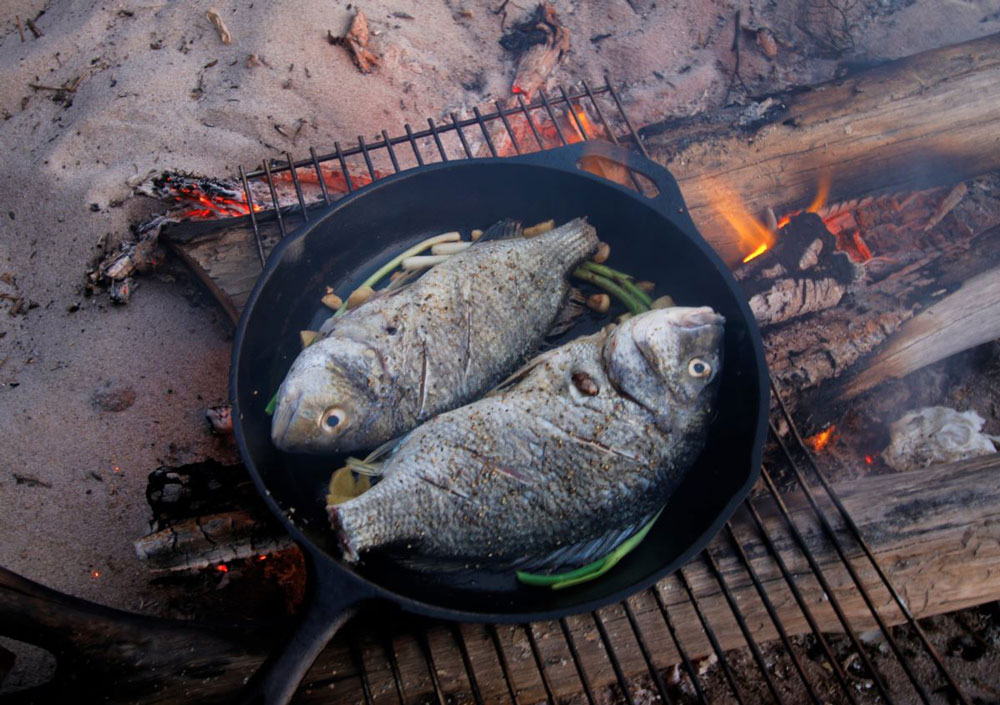
Cooking Gear
Whilst almost all caravans have extensive kitchens there is nothing like an outdoor barbeque or cookup. Pack a portable stove, cooking pot, and utensils, or even a portable fire pit with hotplate etc.
Lighting
Bring a reliable light source, such as a LED lantern or flashlight in addition to caravan and vehicle lighting. It can get very, very dark at night
7. Personal and Hygiene Items
-
Toiletries: Pack essential toiletries, including toothbrush, toothpaste, and biodegradable soap.
-
Clothing and bedding: Bring sufficient appropriate clothing and bedding for your trip and remember the temperature extremes we experience in Australia. Even the desert freezes at night!
-
Personal medications: Remember to pack any personal medications you may need.
-
Sunscreen and insect repellent: don't just pack it, use it! I have had too many trips ruined by those who don’t protect themselves.
-
Antibiotics: I also advise seeing your doctor and asking for some antibiotics for unexpected infections from bites, cuts, and abrasions in remote areas.
-
Rash creams: I am personally allergic to sand flies and hence carry cortisone cream just in case, in addition to antibiotics!
-
Clothesline and pegs: You will eventually have to wash some clothes or dry beach towels, so pack a simple clothesline and pegs. Don't forget some environmentally friendly soap, laundry and dish detergents.
8. Miscellaneous Items
-
Trash bags and a portable toilet: Bring trash bags and a portable toilet to maintain a clean and hygienic environment. Bin bags for mounting on the rear of your vehicle/caravan are a terrific idea, provided they are emptied regularly to avoid attracting unwanted visitors.
-
Camera and charger: Capture memories of your trip with a camera and charger. Nowadays mobile telephones have excellent cameras for most situations.
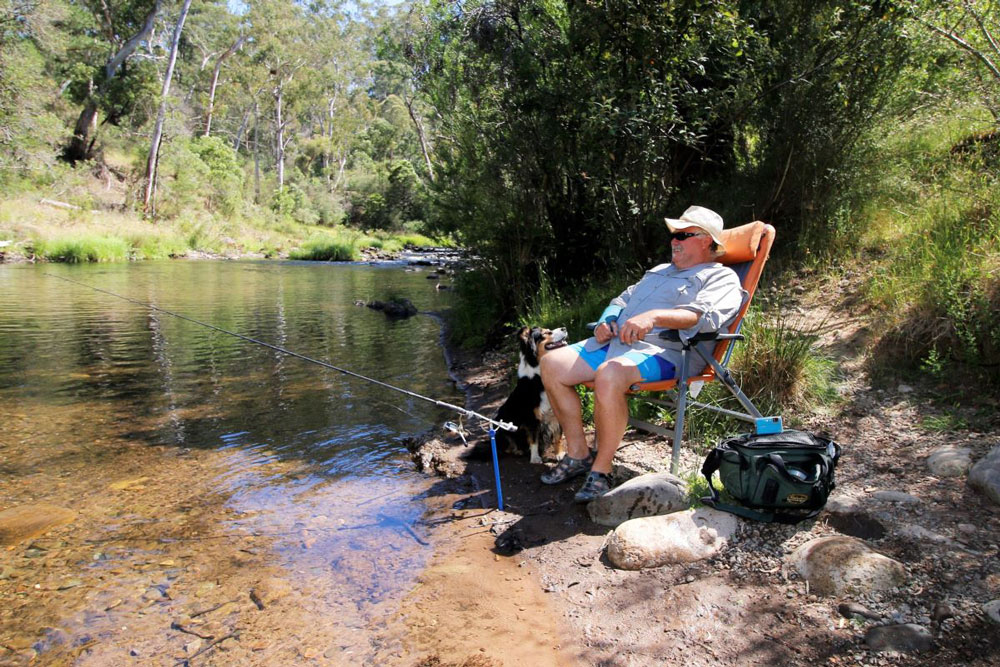
-
Seating: Comfortable camping chairs are must have accessories—at least for me!
-
Fishing gear: I just can't leave home without it!
-
Bluetooth speaker: I just can't leave home without my bluetooth speaker either! (I even have waterproof models!)
8. Pre-Trip Checklist
Before embarking on your off-road adventure, ensure you've completed the following tasks:
-
Service your vehicle and caravan: Ensure your vehicle and caravan are in good working condition.
-
Check your tyres: Ensure your tires are properly inflated and in good condition.
-
Check your mirrors: Make sure that they are securely fit.
-
Pack essential items: Double-check that you have all the essential items listed above.
-
Plan your route: Research your route and plan for contingencies including seasonal weather, remote fuel availability/costs.
-
Don't forget to book: Many destinations require you to book your campsite ahead of arrival.
The Wrap
Off-road touring with a caravan requires careful planning, preparation, and attention to detail. By packing the essential items listed above, you'll be well-equipped to handle the challenges of off-road touring and enjoy a safe and memorable adventure. Always follow safety guidelines, plan, and prepare for the unexpected!
And always remember to pack your smile! A happy visitor always opens more doors to great experiences than a grumpy one.
Still in the market for the perfect off road companion? We have a great selection of off road caravans for sale as well as off road campers for sale. We also have semi off road caravans for sale if that's more your style.
Found your perfect purchase? Let’s make financing just as easy!
Work with Australia’s best-reviewed finance broker for a great deal and a stress-free experience. With 2,500+ glowing Google reviews, you can trust you're in good hands! See what our happy customers say in Credit One reviews, or jump right in and crunch the numbers with our handy loan repayment calculator. Your ideal financing solution is just a few clicks away!
